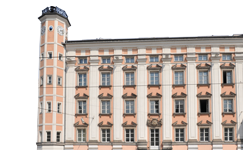The FPÖ in Municipal Councils
A municipal council (Gemeinderat) is the parliament of an Austrian municipality. Throughout Austria, the FPÖ also deputises countless municipal council members to these central institutions of a polity. In recent years, the FPÖ was disproportionately successful at municipal elections held above all in Carinthia and Upper Austria. Vienna can be considered a special case. As a province of the Federation, Austria’s capital city has the Vienna Provincial Parliament (Wiener Landtag) and as a city, it has the Vienna Municipal Parliament (Wiener Gemeinderat), yet the 100 Members of the Vienna Municipal Parliament are simultaneously members of the Vienna Provincial Parliament. In the course of the past decade – namely, in 2010 and 2015 – the FPÖ was able to achieve great success at elections to Vienna’s Municipal Parliament and its District Councils.
In line with Austria’s federal structure, the municipalities form the third level – after the Federation and the provinces – in the administration and enforcement of laws within the Republic. Members of municipal councils, which are sometimes also referred to as municipal representative bodies, are directly elected by the respective municipality’s eligible voters according to the principle of proportional representation, just as is the case for the Austrian National Council and the provincial parliaments.
The FPÖ has several mayors in Austria
However, like most other parties in the National Council of the Republic of Austria, the FPÖ does not currently stand for election in all Austrian municipalities. Yet in some Austrian municipalities, the FPÖ even assumes government responsibility at the municipal level, or provides the mayors of some municipalities. At present, the largest Austrian municipality with an FPÖ mayor is the city of Wels, in Upper Austria.
Vienna is a special case. There, the Municipal Council enjoys a special position, since Vienna is simultaneously a city and a federal province. Accordingly, when the “Parliament” of Vienna convenes to pass provincial legislation, it does so as the Provincial Parliament, but for other purposes, it meets as the Municipal Parliament. In general, it should also be said with regard to municipal council elections in Austria that not all municipalities of a province always elect their municipal council at the same time. Provincial capitals or statutory cities are often the exception.

